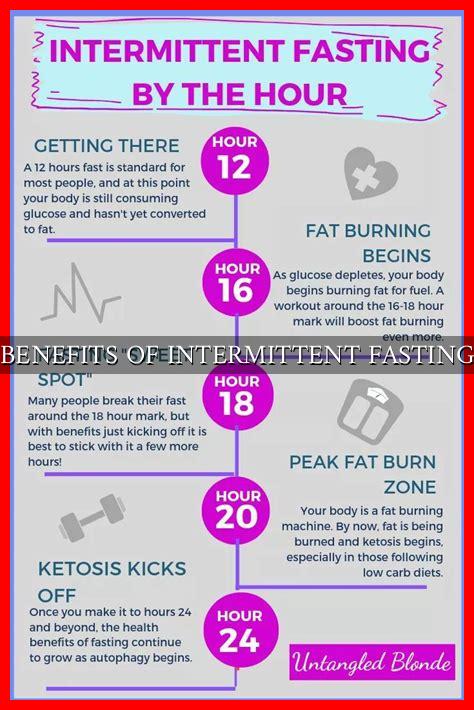-
Table of Contents
The Benefits of Intermittent Fasting
Intermittent fasting has gained popularity in recent years as a powerful tool for weight loss and overall health improvement. This eating pattern involves cycling between periods of eating and fasting, with various methods such as the 16/8 method, 5:2 diet, and alternate-day fasting. Let’s explore the numerous benefits of intermittent fasting.
Weight Loss
One of the primary reasons people turn to intermittent fasting is for weight loss. By restricting the time window in which you eat, you naturally consume fewer calories, leading to weight loss. Additionally, fasting can increase your metabolic rate and promote fat burning, helping you shed excess pounds.
- Research has shown that intermittent fasting can be as effective as traditional calorie restriction for weight loss.
- A study published in The New England Journal of Medicine found that intermittent fasting led to significant weight loss and improved metabolic health in participants.
Improved Metabolic Health
Intermittent fasting has been shown to have numerous benefits for metabolic health.
. It can lower insulin levels, reduce inflammation, and improve blood sugar control. These effects can lower the risk of type 2 diabetes and heart disease.
- Intermittent fasting can improve insulin sensitivity, which is crucial for maintaining stable blood sugar levels.
- Studies have shown that fasting can reduce markers of inflammation, which are linked to various chronic diseases.
Brain Health
Intermittent fasting has also been linked to improved brain health. Fasting can stimulate the production of brain-derived neurotrophic factor (BDNF), a protein that promotes the growth of new neurons and protects existing ones. This can enhance cognitive function and reduce the risk of neurodegenerative diseases like Alzheimer’s.
- Research has shown that intermittent fasting can improve memory and cognitive function in both animals and humans.
- A study published in the journal Cell Metabolism found that intermittent fasting can increase BDNF levels and improve brain function.
Longevity
Intermittent fasting has been associated with increased longevity and a reduced risk of age-related diseases. Fasting triggers cellular repair processes and increases autophagy, the body’s natural process of removing damaged cells and regenerating new ones. This can slow down the aging process and extend lifespan.
- Studies have shown that intermittent fasting can extend lifespan in animals, including mice and monkeys.
- Research published in the journal Nature Communications found that intermittent fasting can increase lifespan and improve healthspan in mice.
Conclusion
Intermittent fasting offers a wide range of benefits, from weight loss and improved metabolic health to enhanced brain function and increased longevity. By incorporating intermittent fasting into your lifestyle, you can experience these positive effects and improve your overall well-being. Consult with a healthcare professional before starting any fasting regimen to ensure it is safe and suitable for you.


